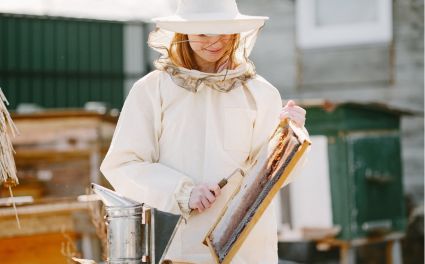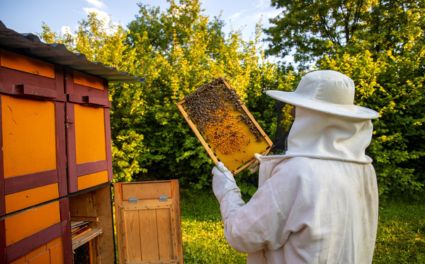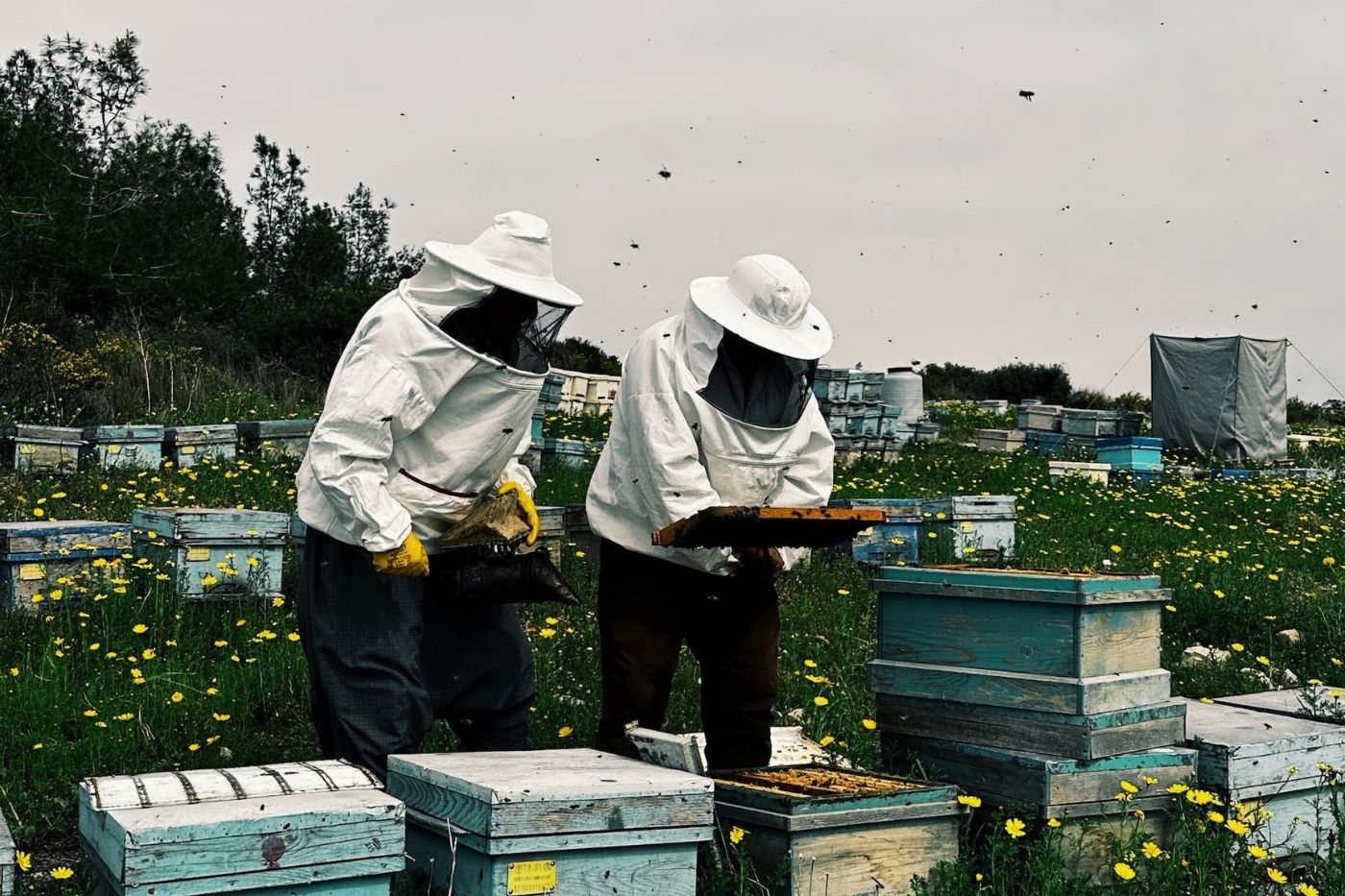Welcome to the wonderful world of beekeeping! If you've ever been curious about this buzzing hobby, you're in for a treat. Not only does beekeeping offer a fascinating glimpse into the secret lives of these incredible creatures, but it also brings with it an array of benefits that extend far beyond just honey production. From environmental sustainability to personal well-being, beekeeping has something to offer everyone. So grab your protective gear and join us as we explore the benefits of keeping bees!
Environmental Benefits
Bees play a vital role in maintaining the delicate balance of our ecosystem. As they go about their daily pollination duties, these tiny creatures are responsible for helping plants reproduce and ensuring biodiversity. Many fruits, vegetables, and flowers would struggle to survive without bees.
It's estimated that one-third of the food we consume is made possible by bee pollination. From apples to almonds and even coffee beans, bees are integral to our agricultural systems. But it's not just about food production. Bees also contribute to maintaining healthy forests and wildflower meadows by spreading pollen from one plant to another. This helps plants reproduce and ensures the survival of various species.
By keeping bees on your property or supporting local beekeepers, you actively preserve natural habitats for these important insects. Creating safe havens with diverse sources of nectar and pollen can help counteract the loss of bee-friendly environments due to urbanization and pesticide use. So whether you're a backyard gardener or a large-scale farmer, embracing beekeeping can have far-reaching environmental benefits that extend well beyond your honey harvests.
Economic Benefits
Beekeeping not only benefits the environment, but it also has a positive impact on our economy. Here are some of the economic advantages of beekeeping:
- Honey Production: One of the most obvious economic benefits of beekeeping is honey production. Honey is in high demand worldwide and can be sold for a profit. Beekeepers can sell their honey directly to consumers or businesses that use it as an ingredient in various products.
- Pollination Services: Bees play a crucial role in pollinating crops, ensuring better yields for farmers. Many fruits, vegetables, and nuts rely on bees for pollination, which contributes to increased agricultural productivity. This increased yield translates into higher profits for farmers and ultimately boosts the economy.
- Value-added Products: Besides honey, beekeepers can produce other value-added products such as beeswax candles, propolis-based skincare products, pollen supplements, and royal jelly capsules. These items have a market demand and provide additional income streams for beekeepers.
- Job Creation: Beekeeping creates employment opportunities at different levels - from hive construction and maintenance to honey extraction and packaging. It supports local economies by providing jobs for individuals interested in working with bees or being part of the apiculture industry.
- Tourism Potential: Beekeeping operations can attract tourists interested in learning about bees and experiencing the process firsthand through guided tours or workshops. This opens up possibilities for agritourism ventures that contribute to local economies.
Beekeeping offers several economic benefits, including income from honey sales and value-added products and improved crop yields through pollination services, benefiting farmers' earnings while creating job opportunities within the apiculture industry.
Personal and Community Benefits
Beekeeping is not only beneficial for the environment and economy, but it also offers numerous personal and community benefits. For individuals, beekeeping can be a rewarding hobby that provides a sense of fulfillment and purpose. Caring for bees allows people to connect with nature and gain a deeper appreciation for the natural world.
In addition to personal satisfaction, beekeeping can foster a sense of community. Beekeepers often join local beekeeping associations or clubs to exchange knowledge, experiences, and best practices with fellow enthusiasts. This creates a supportive network that encourages learning and collaboration. Furthermore, beekeepers play an important role in pollination efforts within their communities. Bees are essential pollinators for many plants, including fruit trees, vegetables, and flowers. By keeping bees on their properties or in nearby areas, beekeepers contribute to the overall health of gardens and crops in their community.
Beyond pollination services, honey produced by local beekeepers also brings economic benefits to communities. Locally sourced honey is highly sought after due to its distinct flavors reflecting the unique flora in each region. This creates opportunities for small-scale honey producers to sell their products locally or at farmers' markets. Engaging in beekeeping has far-reaching personal rewards while fostering community connectivity through shared interests surrounding these fascinating creatures.
Also read: How does a bee become queen?
Environmental Sustainability
One of the key benefits of beekeeping is its contribution to environmental sustainability. Bees play a crucial role in pollination, which is essential for the reproduction of many plant species. By keeping bees and providing them with a safe habitat, we are helping to ensure the survival of these plants and promoting biodiversity.
Not only do bees pollinate flowers, but they also help to fertilize crops, leading to higher yields and better quality produce. This is particularly important in areas where agriculture plays a significant economic role. Beekeeping can contribute to food security by supporting crop production and reducing dependence on chemical pesticides. Furthermore, beekeepers often use organic farming methods to create a healthy environment for bees and other wildlife. This includes avoiding the use of harmful chemicals or genetically modified crops that can have detrimental effects on ecosystems.
In addition to their direct impact on plant life, bees also serve as indicators of environmental health. Their presence or absence can provide valuable information about air quality, water pollution levels, and overall ecosystem balance. By engaging in beekeeping practices that prioritize sustainability and conservation efforts, such as protecting natural habitats or planting native flowers rich in nectar sources for bees - individuals can make positive contributions towards preserving our fragile environment while reaping numerous benefits themselves!
Health and Nutrition Benefits
When it comes to health and nutrition benefits, beekeeping has a lot to offer. One of the primary benefits is the production of honey, which is delicious and packed with nutrients. Honey contains antioxidants that can help protect your body against cell damage and oxidative stress.
Additionally, honey has been used for centuries as a natural remedy for various ailments. It has antibacterial properties that can help soothe sore throats and heal wounds. Raw honey may also help alleviate allergy symptoms by exposing your body to small amounts of pollen. But it's not just about the honey - bee products like royal jelly, propolis, and bee pollen also have their own set of health benefits. Royal jelly is known for its potential anti-aging effects and ability to boost immunity. Propolis has antimicrobial properties supporting oral health and strengthening the immune system.
Bee pollen is considered a superfood because it's rich in vitamins, minerals, proteins, enzymes, and antioxidants. Some studies suggest that consuming bee pollen regularly may enhance athletic performance, reduce inflammation, improve digestion, and even promote weight loss. Incorporating these natural bee products into your diet can provide essential nutrients while benefiting your overall health and well-being.
Also read: What do beekeepers wear and how does it work?
Conclusion
Beekeeping is a fascinating hobby and a practice that brings numerous benefits to the environment, economy, health, and overall well-being. By maintaining bee colonies and harvesting honey, we can contribute to environmental sustainability by promoting pollination and biodiversity. The economic benefits of beekeeping are evident through producing honey and other hive products that can be sold or used for personal consumption.
On a personal level, beekeeping allows us to connect with nature, learn about these incredible creatures, and develop important skills in caring for them. It also allows individuals to become more self-sufficient by producing honey and beeswax-based products. At the community level, beekeeping can foster social connections as local apiaries bring people together in shared interests. It promotes education about conservation efforts, sustainable practices, and appreciation for our natural world.
Furthermore, bees are vital in maintaining ecosystem balance by supporting plant reproduction through pollination. This helps ensure food security for both humans and wildlife alike. Their presence leads to increased crop yields which directly impacts global food production. In addition to this environmental impact, raw honey has many health benefits due to its antibacterial properties and potential allergy relief effects. Honey is also rich in antioxidants that boost our immune system while providing essential nutrients like vitamins B6 and C.
In conclusion (without using those words), embracing beekeeping offers countless advantages on multiple fronts – from fostering environmental sustainability through increased pollination rates; contributing positively towards local economies; creating opportunities for personal growth; improving community engagement; promoting healthier lifestyles; enhancing nutrition intake - all while marveling at the sheer wonder of these industrious insects buzzing around our gardens! So why not consider taking up this rewarding activity? Be part of something bigger than yourself – join the ranks of dedicated keepers who make a difference one hive at a time!



